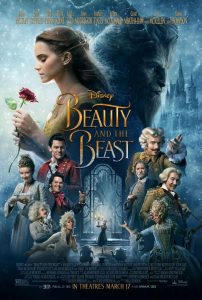 Fun fact: I only saw the Disney animated Beauty and the Beast once, theatrically, 26 years ago. I had the soundtrack CD, so I know it pretty well, but I only ever saw it the one time. (Less fun fact: Twenty six years ago. I was in high school, which is even less fun still.) Between that dimness and the 30+ minutes of new footage, the original live-action Beauty and the Beast that Disney traced the animation from but then kept locked in a vault all this time was pretty close to watching a new movie; at the least, it was like watching a familiar movie where all I could remember was how it ended. And, I mean, fairy tale, so I would have “remembered” that part either way.
Fun fact: I only saw the Disney animated Beauty and the Beast once, theatrically, 26 years ago. I had the soundtrack CD, so I know it pretty well, but I only ever saw it the one time. (Less fun fact: Twenty six years ago. I was in high school, which is even less fun still.) Between that dimness and the 30+ minutes of new footage, the original live-action Beauty and the Beast that Disney traced the animation from but then kept locked in a vault all this time was pretty close to watching a new movie; at the least, it was like watching a familiar movie where all I could remember was how it ended. And, I mean, fairy tale, so I would have “remembered” that part either way.
The artificiality of the thing faded sooner than I expected it would. Like, there’s the artifice of most musicals in the first place. Why are they singing? Why does it not bother them that they’re singing? Especially, why does it not bother them that they’re singing in groups?! But that’s not even what I mean. The part where you know all the words and these people should be animated, and they’re moving like the animated people moved in your memory, but they’re real? That was weird. Until it wasn’t, which was my original point, so I guess I’m glad it faded. All the same, there are things in animation that do not translate well in live action. Like, the snowball fight. The girl who has no real options in the world because it’s the 1700s, but even worse, she’s smart enough to understand she has no options, plus everyone dislikes her for being smart enough to know such things, or really any things, so she has even fewer options than that? That girl, and the prince who was such a failure of a human being that a witch cursed him so that his outsides would be more capable of the destructive rages and petulant angers that his insides were already wracked with, that girl and that prince get in a snowball fight. Well, she throws a snowball at him playfully. And, to be fair, he playfully throws one back, only his outside form has not yet caught up with his gradually bettering insides yet, because that’s only just started to happen, so he’s a hulking beast throwing a snowball that fits in his hand and is therefore roughly the size of Emma Watson’s head, and my point here is that Emma Watson getting laid out flat on her back and unconscious from one playfully intended snowball maybe plays better when it’s the animated version of Emma Watson than it does when a 400 pound hairy asshole just nearly murdered Hermione Granger. Y’know? Unless the point of live action fairy tales is to demonstrate just how exceptionally patriarchally bent they are, in which case, nailed it.
The sad part is, I’m not even saying I didn’t like the movie. It was pretty well executed, and he really eventually isn’t an asshole, and probably wasn’t even for the snowball thing; I just twitch at the idea that she had to fix some asshole, as that was her only path to a reasonably good life. I’m sure things have improved since then, though. I mean, not the part where everyone in the village hates Belle, that part is still true. Just ask Hillary Clinton. But the part where it’s possible to have a good life despite being hated for it, that’s an improvement!
I may have gotten off topic? But the truth is, probably not. Anyway, super-awesome coda: there is a drive-in theater like 4 miles from my house! And that is where I saw this. Downside: a hybrid car is not the right car to take to the drive-in. It kept turning itself off to save battery that honestly did not need saving. So, small tweaks. It’ll be better next time.
Also, the back end of the double feature was Rogue One, which I’m happy to report is still good.
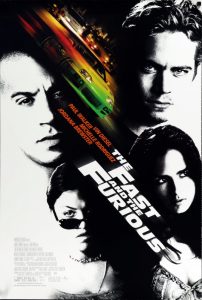 Fun fact: I saw the last 5 minutes of this movie probably half a dozen times while I was working overnights for a cable company in the early 2000s. No idea how or why I never saw any earlier part of it. Later, it turned into a big movie series, and I still never saw any of them. But apparently my parents have, because today is Mother’s Day, and the eighth entry of said series is what she wants to see. So I decided to catch up, which means watch the first one and fail to see anything else due to time constraints.
Fun fact: I saw the last 5 minutes of this movie probably half a dozen times while I was working overnights for a cable company in the early 2000s. No idea how or why I never saw any earlier part of it. Later, it turned into a big movie series, and I still never saw any of them. But apparently my parents have, because today is Mother’s Day, and the eighth entry of said series is what she wants to see. So I decided to catch up, which means watch the first one and fail to see anything else due to time constraints.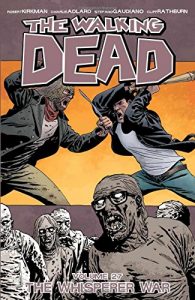 Here are the problems with
Here are the problems with 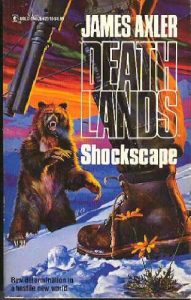 I was poised to read a Robin Hobb book, but then my schedule got pushed back, so I went for something guaranteed to be quick and easy. And then work was a bear[1], and I realized a new Walking Dead was out, so now I’m actually behind on starting the Hobb instead of ahead. Oh well, that’s what happens when I try to keep to a schedule on much of anything besides work and vacations.
I was poised to read a Robin Hobb book, but then my schedule got pushed back, so I went for something guaranteed to be quick and easy. And then work was a bear[1], and I realized a new Walking Dead was out, so now I’m actually behind on starting the Hobb instead of ahead. Oh well, that’s what happens when I try to keep to a schedule on much of anything besides work and vacations.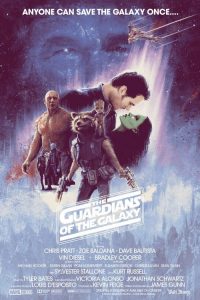 Thing that is awesome: I saw a
Thing that is awesome: I saw a  On Sunday
On Sunday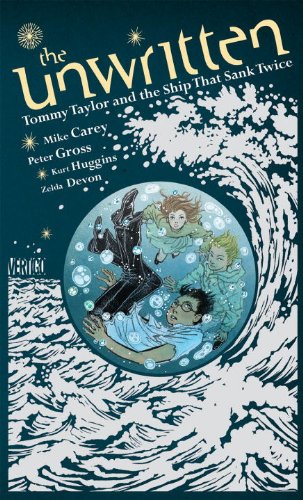 I’ve been reading these Tommy Taylor books long enough to put them on the same level as
I’ve been reading these Tommy Taylor books long enough to put them on the same level as 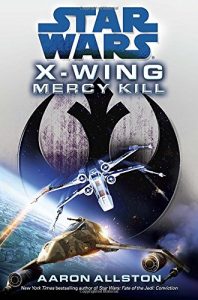 This is I think the next to last volume in the Star Wars Extended Universe series of books, by chronology. It is also, to my knowledge, the last book written by its author before he died unexpectedly a couple of years post-publication, certainly during the timespan when the EU was being gracelessly removed from Star Wars canon. There’s probably some kind of metaphor there.
This is I think the next to last volume in the Star Wars Extended Universe series of books, by chronology. It is also, to my knowledge, the last book written by its author before he died unexpectedly a couple of years post-publication, certainly during the timespan when the EU was being gracelessly removed from Star Wars canon. There’s probably some kind of metaphor there. The biggest problem with
The biggest problem with  Fun fact: I only saw the Disney animated Beauty and the Beast once, theatrically, 26 years ago. I had the soundtrack CD, so I know it pretty well, but I only ever saw it the one time. (Less fun fact: Twenty six years ago. I was in high school, which is even less fun still.) Between that dimness and the 30+ minutes of new footage, the original live-action
Fun fact: I only saw the Disney animated Beauty and the Beast once, theatrically, 26 years ago. I had the soundtrack CD, so I know it pretty well, but I only ever saw it the one time. (Less fun fact: Twenty six years ago. I was in high school, which is even less fun still.) Between that dimness and the 30+ minutes of new footage, the original live-action 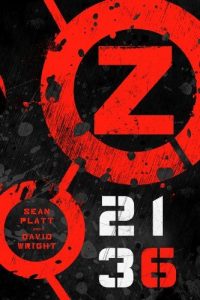 As you have no reason whatsoever to remember, I read the previous two books in this trilogy sometime in the last year or two I guess? And they were perfectly cromulent serial schlock.
As you have no reason whatsoever to remember, I read the previous two books in this trilogy sometime in the last year or two I guess? And they were perfectly cromulent serial schlock.